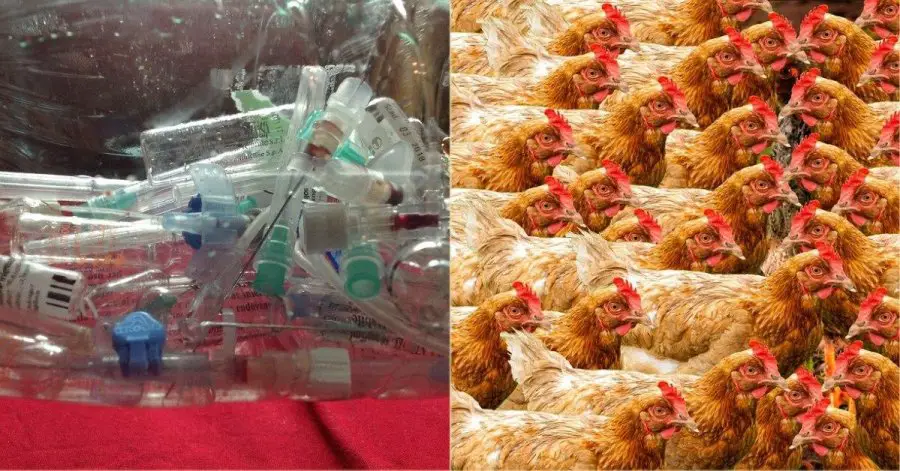The Fight To Have Chlorinated Chicken And Hormone-Treated Beef Banned In The UK Continues
Tags: News

A rebellion against the UK government for a change to the Agriculture Bill over post-Brexit food import standards was defeated in parliament this week.
Up until Brexit officially began on January 31 this year, the UK had been following EU regulations regarding food standards, which makes illegal practices such as the chlorine-washing of chickens and hormone-treated beef.
A ‘transition period’ of 11 months has been allowed for the UK and Europe to negotiate their future trade relationship.
Now as the UK sets about implementing its own trade regulations, there have been concerns about the standard of food imports. Especially that of meat coming in from the United States.
Tory MP Simon Hoare has led the fight, calling for the banning of practices such as chlorine-washing chickens and hormone-treated beef to be implemented in the UK’s Agriculture Bill.
But Hoare, and those who voted for the changes to the bill, lost by 277 votes to 328.
‘Cheap food equals lower standards’
Hoare warned that not changing the bill will mean that “food imports to this country [UK] would be cheap for no other reason bar the fact that they were raised to lower standards”.
Ministers have countered by saying that food standards will instead be dealt with in the upcoming Trade Bill. Environment Minister Victoria Prentis cautioned of “unintended consequences” if the bill were to be amended.
She added that EU food import standards would be converted into UK law by the end of the year.
There will be “a ban on using artificial growth hormones in beef,” she said. “Nothing apart from potable water may be used to clean chicken carcasses and any changes to these standards would have to come before this Parliament. We will be doing our own inspections to ensure that these import conditions are met.”
Opponents are of the belief that farming standards could be compromised during the Trade Bill negotiations.
Neil Parish, chairman of the Environment, Food and Rural Affairs Committee, was another one on the losing side of the vote this week.
One of the reasons given for not amending the bill according to Environment Minister Prentis was that “the supply of food would be significantly disrupted if goods that meet our current import standards were blocked.”
Parish however feels rather than Britain compromising, the United States should be looking at their safety standards:
“I’d say to the Americans, why don’t you upgrade your production?” he asked. “Why don’t you reduce the density of population of your chicken?
“Why don’t you reduce the amount of antibiotics you’re using and then you can actually produce better chicken not only for America, it can also come into this country.
“Let’s not be frightened of putting clauses into this bill that protect us to have the great environment and welfare that the whole bill wants to have and farmers want to have.”
Read more: Asian Wet Markets Bring Up The Question: How Safe Are America’s Factory Farms?

Leave Comment: